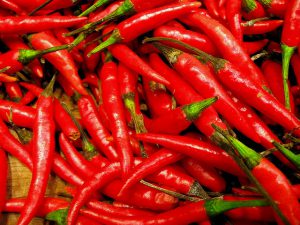Organic management improves pepper quality and soil health
 Photo Credit: Ana Ulin
Photo Credit: Ana Ulin
A recent study published in Organic Agriculture investigated the quality of Capia peppers grown under conventional and organic management. Researchers conducted the trials over nine years to quantify differences in quality among plots while accounting for variation from year to year. While the quality of the peppers varied significantly from year to year, the overall quality for processing was significantly higher for peppers grown organically. Researchers quantified yield, size, color, pulp thickness, total soluble solids and ascorbic acid content in the peppers, as well as the soil quality among the two plot types. The results found that organic soils were healthier and organic peppers had improved characteristics for processing. Specifically, the organic soils contained more organic carbon, while steadily increasing nitrogen levels. Meanwhile, nitrogen levels in the conventional plot fluctuated widely from year to year, possibly due to fertilizer runoff and leaching. While the yields for organically grown peppers were slightly lower than the conventionally grown peppers, the organic peppers had better fruit colors and more total soluble solids—characteristics that improve shelf-life and make them ideal for processing. Furthermore, although smaller, the organic peppers had thicker pulp. “The nine-year study displayed statistically similar yield values but higher processing fruit quality (pericarp thickness, total soluble solids, and color) to suit the demands of the processing industry,” the authors wrote, adding, “The organic management system can be further optimized through experiments with the rotation program including leguminous species and farmers’ preferences to obtain higher yields and higher economic outputs.”


